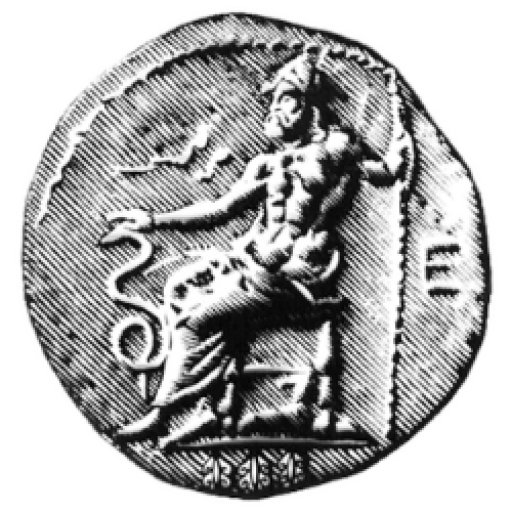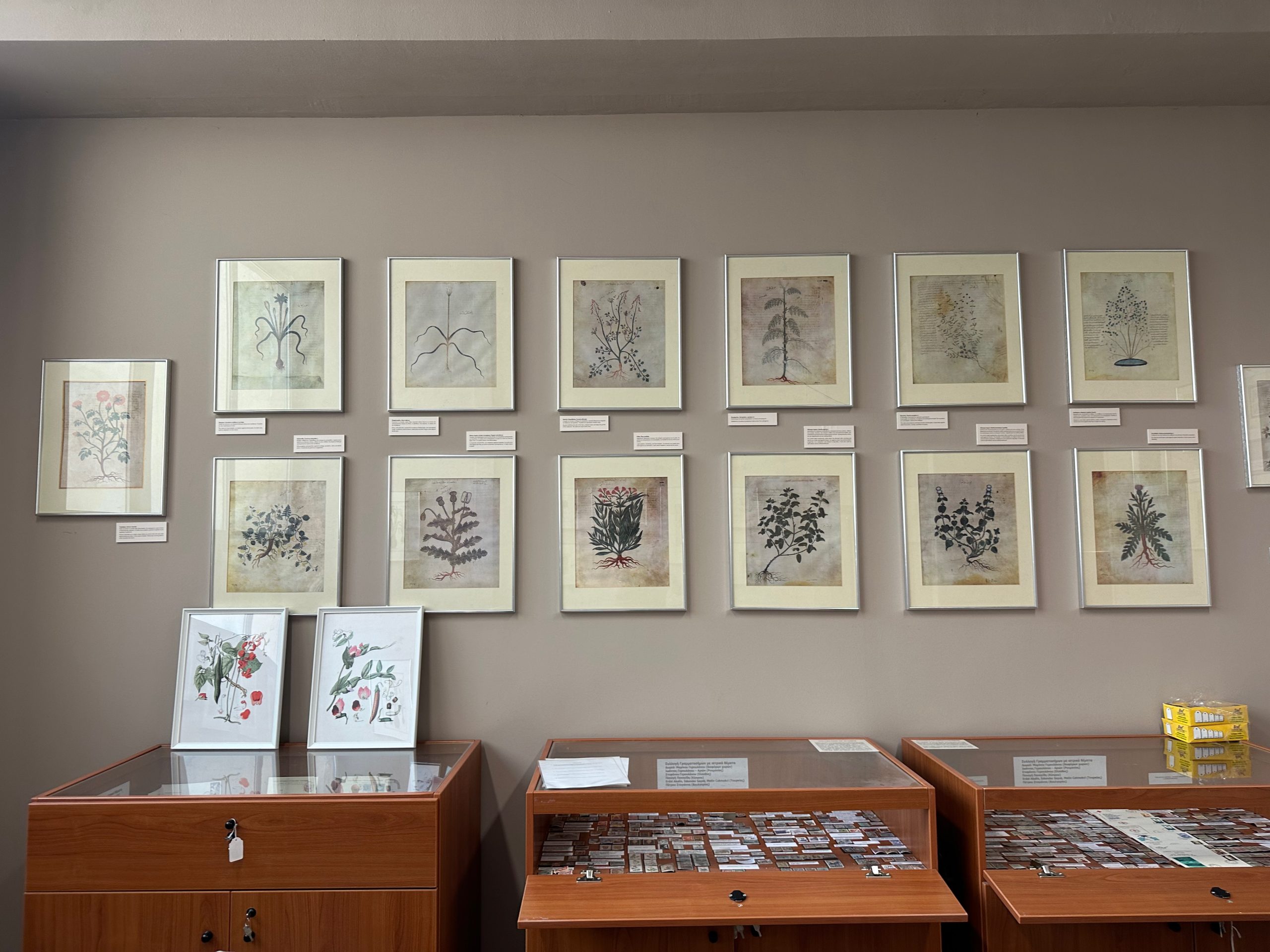ABOUT
The historical retrospection of the museum begins with antiquity, to which the emblematic first room "Panagiotis and Eleni Angelopoulou" is dedicated. The 18 identical replicas of busts or statues of Apollo, Asclepius, Hygeia, Podaleirius, Hercules, Hippocrates, etc. are imposing presences. In the same area, the walls are decorated with 17 reliefs and votive plaques depicting patients or medical procedures from antiquity: Physician Jason the Acharnios from the British Archaeological Museum, the so-called Physician of Basel from the Archaeological Museum of Basel, Dromas the Thneissing from the National Archaeological Museum and the relief of Lysimachidis with varicose veins on the shin from the National Archaeological Museum, or the Family of Asclepius from Varna, Bulgaria and the Amphiglyph of Telemachus of Acharneos, founding monument of the Asclepius of Athens from the Acropolis Museum, are some of the most characteristic ones.
The rest of the walls of the first room have frames with illustrated texts of ancient and Hippocratic literature and Asclepius, as well as medical machines of antiquity and Dioscorides medicinal plants.
Apart from these, it is worth spending time in the seven large showcases of the two rooms integrated into the hall, where old copies of the Hippocratic Collection are displayed, such as the first two Greek editions of 1526 and 1538 AD, ancient coins with medical themes (Asclepius, Hygeia, Telesphorus, sacred serpent, cystophores, etc.), ancient surgical instruments - some in original form and others as copies - vedouzes, etc. The crowning glory of these exhibits is the ancient 'Light Drachma' of Epidaurus, which depicts Apollo Meleates on one side and Asclepius on the other, a copy of the gold and ivory statue of Asclepius by the famous sculptor Thrasymides.
In the second room, integrated into the first room, there are banknotes and medals depicting medical personalities - from Apollo and Asclepius to Ioannis Kapodistrias, Adamantios Korais and Georgios Papanikolaou - from Greece and abroad, such as Louis Pasteur, Florence Nightingale, Marie Curie, Sigmund Freud and Karl Landsteiner.
Impressive, no doubt, in one corner is a 17th-century model of a physician in the garb of the doctors of the plague epidemic era, with a birdlike visor, black cape and thin cane.


